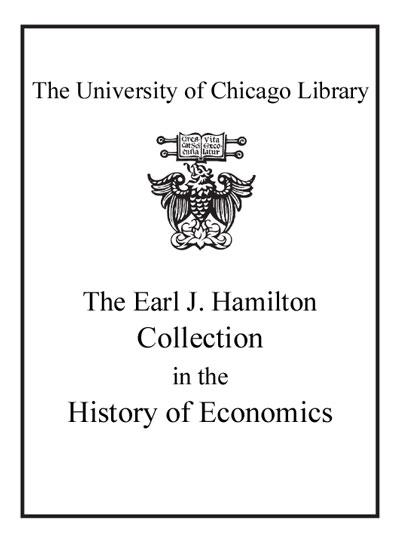Review by Choice Review
Wall Street chronicles America's securities industry from the early years of the Republic up to the present. Geisst (finance, Manhattan College) is the author of two previous publications on domestic and foreign finance of enterprise in the US in the 20th century: Exchange Rate Chaos (CH, May'96) and Entrepot Capitalism (CH, Oct'92). The book is divided into 11 chapters, which are arranged chronologically. The first four deal primarily with the 18th and 19th centuries: the early years (1790-1840), the railroad and Civil War years (1840-70), the robber barons (1870-90), and the age of the trusts (1880-1910). The remaining seven chapters concentrate on the 20th century: the money trust (1890-1920), the booming twenties (1920-29), the New Deal (1930-35), the continuing struggle (1936-54), the bull market (1954-69), the bear market (1970-81), and mergermania (1982-96). The book is nontechnical, relying primarily on published (rather than archival) sources. Wall Street will be useful for anyone with an interest in America's financial markets, both past and present; given the wide participation in the bull market of recent years, this suggests a wide range of readers. All libraries. R. Grossman; Wesleyan University
Copyright American Library Association, used with permission.
Review by Booklist Review
Martin Mayer, John Brooks, and Robert Sobel--among others--have written notable histories of the stock market; so Geisst's assertion that his is the "first history of Wall Street" must be taken as a bit of hyperbole. What Geisst, a finance professor at Manhattan College's School of Business, does do is compile a sweeping, inclusive account of 200 years of "the Street's" colorful past and its inextricable influence on America. He sees four distinct phases in the evolution of Wall Street. The first, from 1790 to the Civil War, saw trading techniques developed and legendary fortunes made. Next came the period from the Civil War to 1929, which was dominated by robber barons, money trusts, and development of the railways. From 1929 to 1954 the market reacted to the Depression, war, and increasing government regulation. With the election of Eisenhower, we entered the great bull market that we're still experiencing. Interwoven throughout the narrative are portraits of Wall Street's most illustrious and most notorious figures, but Geisst keeps a focus on the impact of regulation and the "uneasy relationship between finance and government." --David Rouse
From Booklist, Copyright (c) American Library Association. Used with permission.
Review by Library Journal Review
Geisst (finance, Manhattan Coll.) highlights the fluctuations of The Street during the past 200 years. From the beginnings in the 1790s, when auctioneers and dealers conducted curbside transactions, to the "merger mania" of the 1980s and 1990s, Geisst shows how events in our country affected Wall Street and how Wall Street deals influenced our country's history. We learn about the impact of the California Gold Rush and the Civil War on the banking and securities markets and how and why the ruthless dealings by the robber barons of the late 19th century and the stock market crash of 1929 unleashed a flurry of government regulations. The notes to the 11 chapters and the bibliography include a wealth of additional information and will be a useful starting point for further reading. Recommended for academic and public libraries.Charles A. Skewis, Georgia Southern Univ., Statesboro (c) Copyright 2010. Library Journals LLC, a wholly owned subsidiary of Media Source, Inc. No redistribution permitted.
(c) Copyright Library Journals LLC, a wholly owned subsidiary of Media Source, Inc. No redistribution permitted.
Review by Kirkus Book Review
Geisst (Finance/Manhattan Coll.) attempts a comprehensive history of Wall Street. Unfortunately, this amorphous subject poses problems that are not overcome. ``Wall Street'' is an umbrella term for the financial community centered in New York City, not a single endeavor located at a specific address. Given the role of private investment in a capitalist economic system, it is also inextricably linked to government finance, all sectors of the domestic economy, and economic activity worldwide. This makes Wall Street difficult to define, let alone document over time, but Geisst nevertheless plunges forward with a general survey. The result is an account that remains on the surface yet will often be inaccessible to those without some knowledge of the market; this compendium of information lacks any framework to guide the reader through events. To make matters worse, the broader political environment is sometimes misrepresented: How can one characterize the Smoot-Hawley tariffs of the 1930s as ``the very opposite of Republican [Party] principles'' when Republicans had championed protective tariffs for the preceding 60 years? The most disconcerting quality of this volume, however, is a function of Geisst's effort to combine honest description with a proWall Street perspective. For example, President Truman's suspicions ``that financiers had been conspiring to rig the underwriting business in their own favor'' are characterized as his ``bias against Wall Street,'' despite Geisst's extensive accounts of financiers doing precisely what Truman suspected. Even stranger is the assertion that the dismissal of a government case alleging collusion on Wall Street proved that investment bankers are ``vital to the economy''; vital they may be, but drawing this conclusion here is certainly a non sequitur. A history of Wall Street educating the general public about this important and often confusing institution is a worthy goal-- and one not yet achieved.
Copyright (c) Kirkus Reviews, used with permission.
Review by Choice Review
Review by Booklist Review
Review by Library Journal Review
Review by Kirkus Book Review

